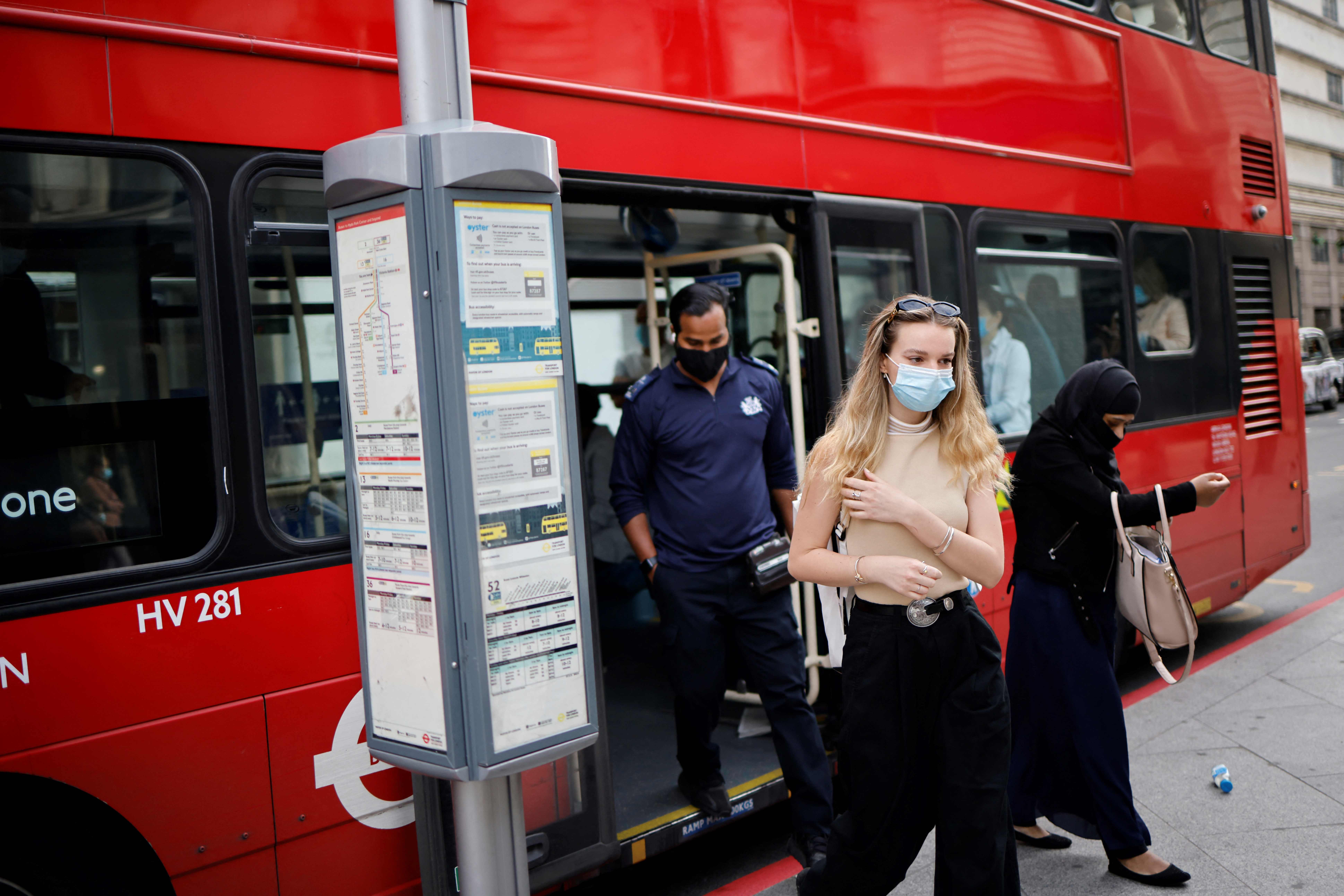Employers should pay half of workers’ commuting costs when they return to office, says think tank
Costs of commuting a ‘hidden tax’, Autonomy says

Your support helps us to tell the story
From reproductive rights to climate change to Big Tech, The Independent is on the ground when the story is developing. Whether it's investigating the financials of Elon Musk's pro-Trump PAC or producing our latest documentary, 'The A Word', which shines a light on the American women fighting for reproductive rights, we know how important it is to parse out the facts from the messaging.
At such a critical moment in US history, we need reporters on the ground. Your donation allows us to keep sending journalists to speak to both sides of the story.
The Independent is trusted by Americans across the entire political spectrum. And unlike many other quality news outlets, we choose not to lock Americans out of our reporting and analysis with paywalls. We believe quality journalism should be available to everyone, paid for by those who can afford it.
Your support makes all the difference.Employers should cover half of staff commuting costs once working from home ends, a think tank has said.
Autonomy said subsiding workers’ travel would incentivise the use of public transport and improve their real income significantly.
It is calling for a ‘Claim the Commute’ scheme in which companies would pay for 50 per cent of their employees’ commuting fares as some begin to return to offices after months of working from home.
A report by the think tank noted commuting also brought costs to the health and wellbeing of workers and damaged the environment. It called for a more even distribution of these costs between workers and employers.
“These costs should therefore be understood as ‘hidden taxes’: they fall disproportionately on commuters and on the public purse, and benefit employers,” wrote authors Nic Murray and Will Stronge.
Up to 20 million workers would see their real incomes rise if employers subsidised their commutes, the report found, with those travelling by rail saving up to £2.6bn.
Autonomy highlighted the relatively high costs shouldered by UK workers compared to their European counterparts. For workers based in outer London earning the minimum wage, commuting costs could be as high as 21 per cent of their income.
On average, staff commuting from Chelmsford to London spend 13 per cent of their earnings on travel costs. In France, a similar journey from Étampes to Paris would eat up just 2 per cent of the average worker’s wages.
A ‘Claim the Commute’ scheme would encourage the use of public transport, with rail and bus journeys prioritised for subsidies. At present, 68 per cent of all commutes are made by car, but the research found that more than a quarter of workers in rural areas and 40 per cent of those in cities could easily switch to another form of transport.
The research comes amid reports ministers are considering legislation that would bar many bosses from forcing employees into the workplace unless their presence is essential. Although remote working has more than doubled over the course of the pandemic, people who worked from home were still a minority in 2020, with just a quarter (25.9 per cent) of the UK workforce doing so.
Mr Stronge, director of research at Autonomy, said: “Commuting is not free time, but an activity that we all are forced to do in order to turn up for our employers.
“In the context of Covid, there is added danger and stress for employees, who might be forced back onto public transport by firms, and who will now be paying even higher fares for the inconvenience.
“As in other parts of the world, there is a strong argument that employers should pay their fair share and compensate for the time and rip-off costs associated with the daily commute to work.”
The average length of time spent commuting daily is 59 minutes in the UK, according to a 2019 analysis by the Trades Union Congress – a five-minute increase compared with a decade ago. Londoners spend one hour and 19 minutes travelling to and from work each day.
Join our commenting forum
Join thought-provoking conversations, follow other Independent readers and see their replies
Comments